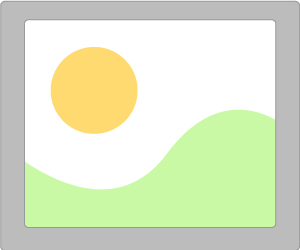글: 23
언어: English
Bruso (프로필 보기) 2015년 9월 23일 오후 11:10:47
robbkvasnak:The word hasn't been in common use since the middle of the last century, so it isn't going to come up in conversation anymore.Bruso:Can you think of a need for this word? Modelo-to de la aero? Do they still have those things in Virginia? I had never heard of them.robbkvasnak:as the innovations become old hat and they themselves disappear, the words are lost with them.I wonder if there was ever an Esperanto word for "flivver".
But it could come up when translating an older book, or in a historical reference.
You can find it used by searching Google (which is where we started) Books.
Cocio_16 (프로필 보기) 2015년 9월 24일 오전 11:08:14
I suggest the verb "serĉi".
"Retserĉi", "interretserĉi", or "retpaĝserĉi" if you're a grandma and you want people to think you can use a computer.
richardhall (프로필 보기) 2015년 9월 24일 오전 11:17:34
Cocio_16:to google... What's the point of that verb in English anyway? I've never used that verb in my entire life.'What's the point' is a fair question, but the simple fact is that Google has entered the English language as a verb (and did so quite a long time ago: http://news.bbc.co.uk/1/hi/uk/3006486.stm)
Of course, that doesn't mean it has to be 'Esperantized'!
Ondo (프로필 보기) 2015년 9월 25일 오전 10:45:51
Google objected because the council defined the word as a "term not found using internet search engines", rather than specifically referencing Google.
"The council said the discussions with Google had taken up too many of its resources and instead removed the word entirely, hoping to foster debate about a corporation seeking to influence how Swedes use their own language."
Rajzin (프로필 보기) 2015년 9월 25일 오전 11:36:07
Cocio_16:to google... What's the point of that verb in English anyway? I've never used that verb in my entire life.Well, I use it a lot. And so do many other people I know. It's more common among the younger generations, but my father uses it too.
richardhall:the simple fact is that Google has entered the English language as a verb (and did so quite a long time ago: http://news.bbc.co.uk/1/hi/uk/3006486.stm)Not just the English language. I know "googelen" is also in our Dutch dictionary. And without a doubt in many other dictionaries around the world as well.
According to Wiktionary:

To say the verb is international is almost an understatement.
Cocio_16 (프로필 보기) 2015년 9월 26일 오후 2:33:37
vikungen (프로필 보기) 2015년 9월 26일 오후 3:21:19
Roch:Isn't it a particularity of esperanto of being very regular and making verbs from noums... in adding a i to the root.No, just no.
Maybe to write it Gugl-o, in my case, the phonetic plus the noun ending, to respect the logo, but gugli is a good verb. It's perfectly in the spirit of esperanto!
Brand names stick the same, like every other European language, it is that easy.
Mi ŝatas Google.
If you keep on translating every brand name nobody will understand what you're talking about eventually.
RiotNrrd (프로필 보기) 2015년 9월 26일 오후 11:07:01
Roch:The word subject before the object order, is ok to me, but it has been taught that there wasn't any word order in esperanto!Then you have been taught incorrectly.
"La" requires a particular word order: it precedes its noun, and never follows it. "Ne" behaves similarly: in most cases it also must precede what it negates; putting it after what it negates will likely vastly change the meaning of the sentence. All prepositions demand a particular word order.
You cannot take most nontrivial Esperanto sentences, randomly shuffle the words, and expect them to necessarily make sense. If Esperanto had a completely free word order such sentences would always make sense.
Esperanto has a free-er word order than most languages. But it is not totally freeform.
RiotNrrd (프로필 보기) 2015년 9월 27일 오전 3:49:43
You cannot have
Knabo la mordis hundon la.
La mordis hundon knabo la.
Mordis knabo hundon la la.
Each of those "sentences" contain the same words as the sentences you posted, yet are meaningless. Some word orders are simply incorrect. Esperanto is not completely freeform.
Tempodivalse (프로필 보기) 2015년 9월 27일 오전 3:59:33
If you want to speak standard, normal Esperanto that proficient Esperantophones speak, you use mostly SVO and diverge primarily for emphasis or stylistic reasons. If you insist on using another word order as the default (especially VOS or VSO), people will look at you a little funny, as though you were trying to imitate Yoda.



